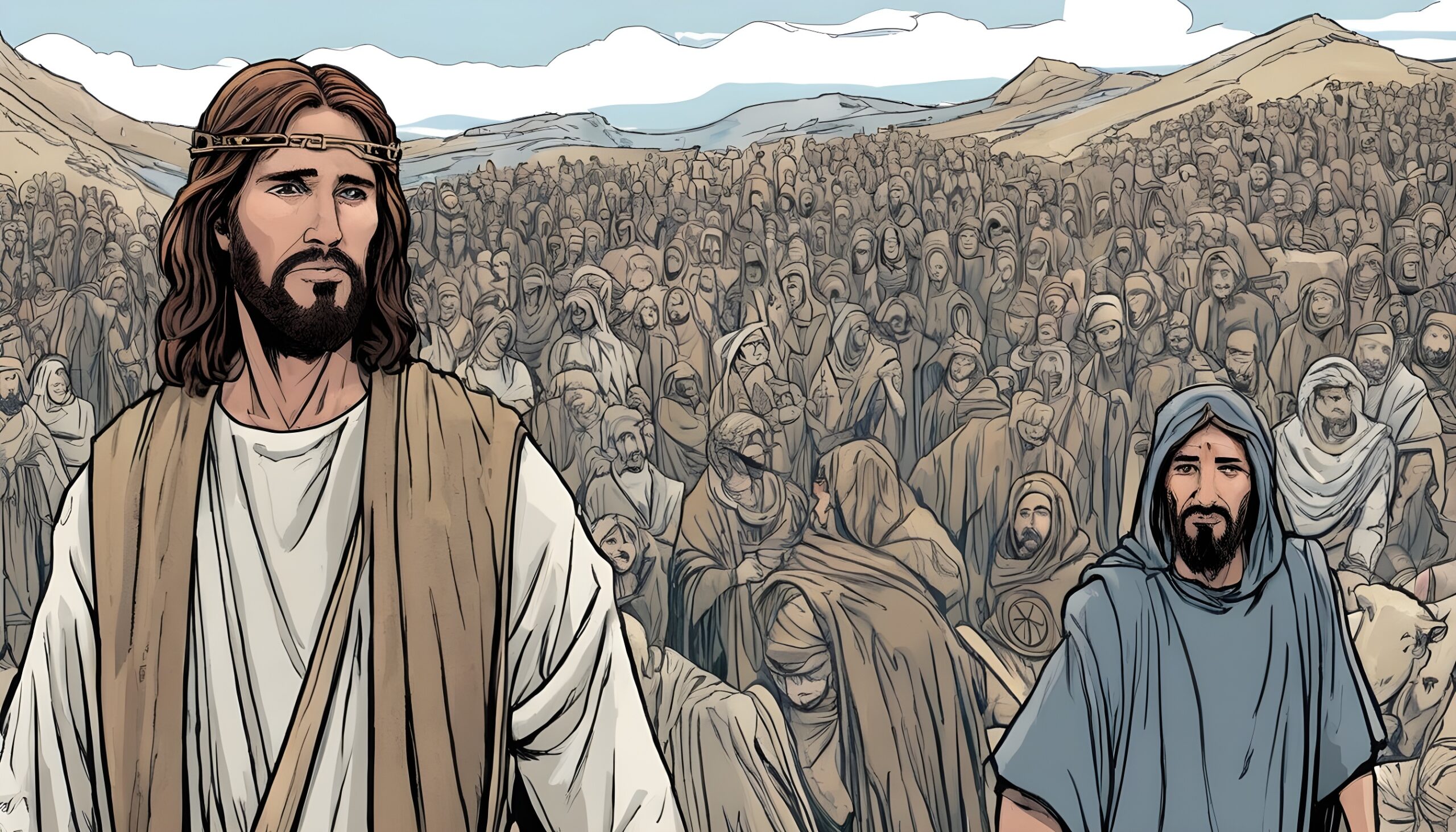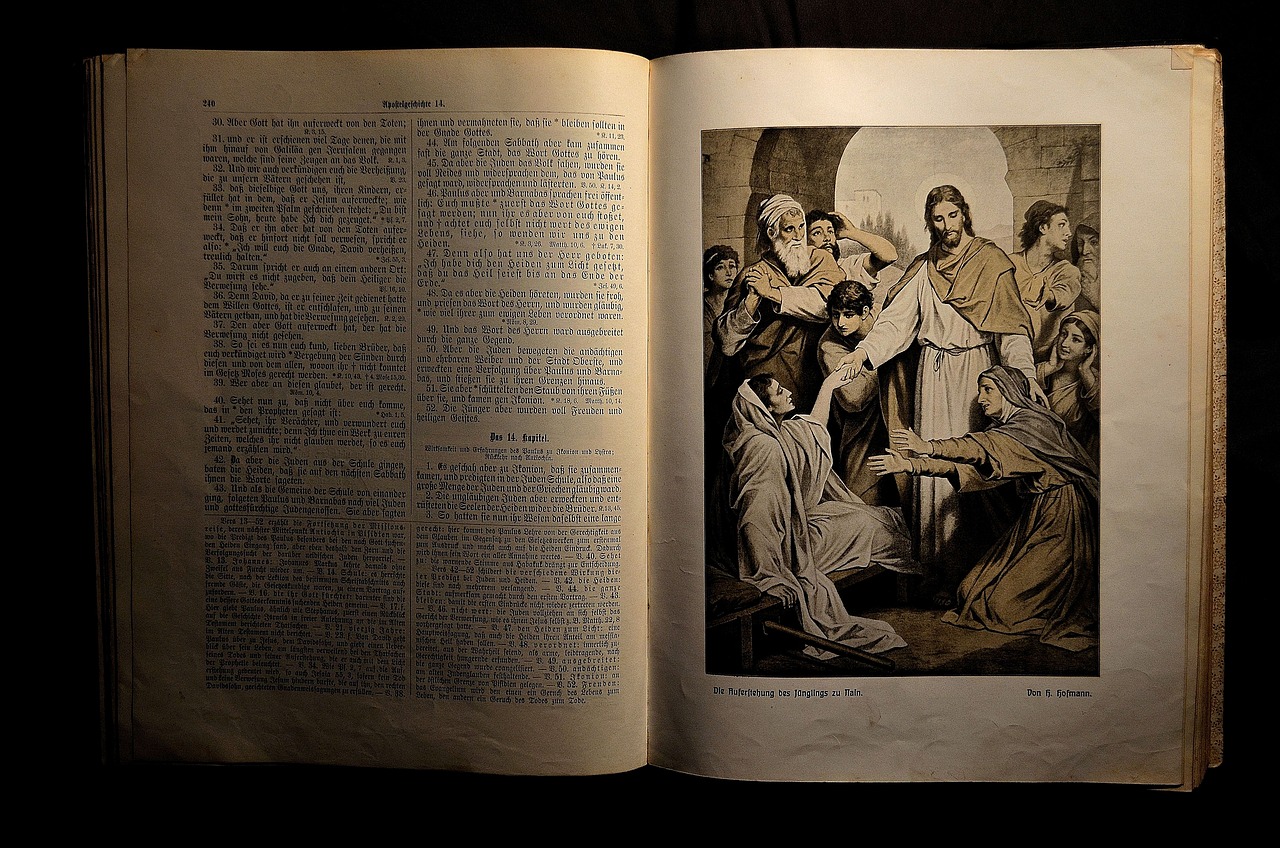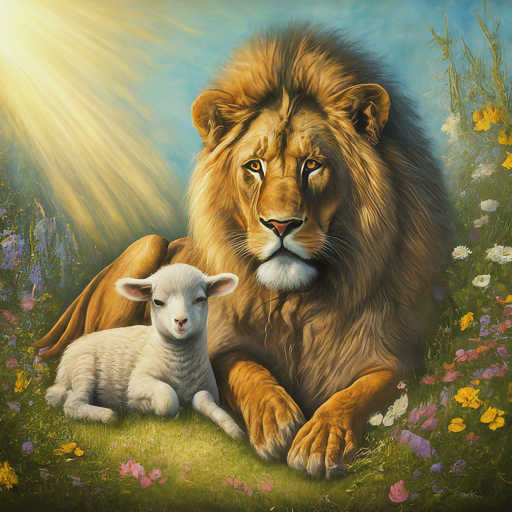Zechariah 11: A Prophetic Shepherd’s Staff – Unveiling Christ in the Fold
Zechariah 11 unfolds like a dramatic play, staged on the canvas of prophecy. In this captivating act, God appears as a director, instructing Zechariah to don the garb of a foolish shepherd and tend a flock marked for slaughter. This enigmatic performance, rife with symbolism and profound connections to Jesus Christ, invites us to delve deeper into the heart of the divine message.
A Shepherd’s Double Vision: The stage is set with a stark pronouncement: “Become the shepherd of the flock doomed for slaughter” (Zechariah 11:4). Zechariah’s role isn’t one of comfort and idyllic pastures; he’s thrust into the midst of a doomed flock, mirroring the state of Israel at the time – vulnerable, exploited, and teetering on the edge of destruction. However, within this bleak scene, a glimmer of hope shines through. God commands Zechariah to take two staffs: “Favor” and “Union,” symbolizing the dual nature of His plan for this flock. This foreshadows the dual nature of Jesus, the suffering Lamb of God and the triumphant King who ultimately unites His disciples under His banner.
The Play Unfolds: As the act progresses, the shadows deepen. We witness the shepherds – representing corrupt leaders – exploiting and neglecting the flock (Zechariah 11:7-8). Their ruthlessness reflects the spiritual neglect Israel endured, echoing the oppressive systems Jesus challenged throughout His ministry. But here, the prophetic play diverges from a mere historical parallel. In a dramatic twist, Zechariah breaks his staffs, “Favor” and “Union.” This symbolizes the fracturing of Israel’s covenant with God and the temporary severing of their unity. Yet, even in this act of apparent judgment, we see a glimmer of the coming Messiah. Jesus, through His sacrificial death, would seemingly break the covenant, only to ultimately fulfill it in a new and everlasting way.
From Slaughter to Sanctuary: The drama takes another unexpected turn as God declares, “I will no longer pity the inhabitants of the land… I will deliver everyone into his neighbor’s hand and into the hand of his king” (Zechariah 11:9). This pronouncement of judgment, while seemingly harsh, foreshadows the necessary refining fire through which Israel and all humanity must pass. Jesus, Himself the epitome of suffering, willingly embraced the path of pain and rejection, paving the way for ultimate redemption.
Beyond the Play’s End:
#Zechariah11 #ShepherdsStaff #ChristInTheFold #PropheticDrama #DualNatureOfJesus #CovenantRedemption #BetrayalAndSacrifice #RemnantOfHope #ShepherdKing #TransformativePower #DivineDrama #JesusChrist #RedemptionThroughSuffering #EternalHope #GodsLoveUnveiled
As the prophetic act concludes, a ray of hope pierces the darkness. A remnant of the flock – “thirty pieces of silver, the price at which he was valued by those for whom he sold them” (Zechariah 11:13) – survives the ordeal. This seemingly insignificant detail carries immense weight, foreshadowing the betrayal of Judas and the seemingly insignificant sum offered for Jesus’ life. Yet, within this act of betrayal lies the foundation for salvation. Jesus, through His suffering and sacrifice, becomes the redeemer, purchasing humanity with a price far beyond mere silver – the price of His own blood.
Zechariah 11, though often enigmatic, paints a vibrant portrait of Jesus’ role as the Shepherd King. He takes on the burden of a doomed flock, suffers the consequences of human failings, endures the fracture of unity, and ultimately emerges as the source of redemption and everlasting hope. It reminds us that even in the midst of darkness and suffering, God’s plan unfolds, weaving threads of grace and redemption even within the most complex tapestry of human actions. So, let us delve deeper into this prophetic play, not just as observers, but as participants in the unfolding drama of God’s love, embracing the transformative power of the Shepherd King who leads us through the shadowed valleys towards the pastures of eternal life.
This chapter delves deeper into the connections between Zechariah 11 and Jesus Christ, exploring concepts like:
- Dual nature of Jesus: Combining suffering and triumph, reflected in the staffs “Favor” and “Union.”
- Symbolic breaking of the covenant: Jesus’ death seemingly severed the old covenant, paving the way for a new one.
- Significance of betrayal: Foreshadowing Judas’ act and highlighting the power of Jesus’ sacrifice.
- Remnant of hope: Emphasizing that even in suffering, a path to redemption remains.
- Jesus as the Shepherd King: Unveiling His role as the leader who guides us through darkness to grace.



